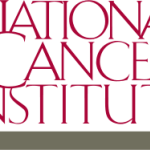- Industria: Government; Health care
- Number of terms: 6957
- Number of blossaries: 0
- Company Profile:
The National Cancer Institute (NCI) is part of the National Institutes of Health (NIH), which is one of 11 agencies that compose the Department of Health and Human Services (HHS). The NCI, established under the National Cancer Institute Act of 1937, is the Federal Government's principal agency for ...
A humanized agonistic monoclonal antibody directed against human tumor necrosis factor-related apoptosis-inducing ligand receptor 2 (TRAIL-R2) with potential antitumor activity. Mimicking the natural receptor ligand TRAIL, tigatuzumab binds to TRAIL-R2, activating signal transduction pathways that may result in tumor cell apoptosis and a reduction in tumor growth. A member of the tumor necrosis factor (TNF) receptor family, TRAIL-R2, also known as DR5 (death receptor 5), is expressed on the surfaces of many types of malignant cells.
Industry:Pharmaceutical
A human/murine chimeric monoclonal antibody directed against endoglin (CD105) with potential antiangiogenic and antineoplastic activities. Anti-endoglin monoclonal antibody TRC105 binds to endoglin, which may result in inhibition of tumor angiogenesis and decreased tumor cell proliferation. The glycoprotein endoglin is a transforming growth factor beta-1 (TGF beta-1) accessory receptor that is highly expressed on tumor vessel endothelial cells and appears to be essential for angiogenesis.
Industry:Pharmaceutical
A human, soluble fusion protein consisting of the extracellular domain of the CD95 receptor fused to the Fc-domain of the human IgG antibody, with potential antineoplastic activity. CD95 ECD/IgG-Fc fusion protein APG101 binds to the CD95 ligand (CD95L) and blocks the binding of CD95L to the CD95 receptor. In tumor cells, blockage of CD95L-mediated signaling pathways may prevent cell migration and invasive cell growth; in healthy cells, blockage of CD95L-mediated signaling pathways may prevent apoptosis and may protect cell damage. Activation of the CD95 receptor plays an important role in the initiation of apoptosis in healthy cells or the invasive growth of cancer cells.
Industry:Pharmaceutical
A human monoclonal antibody targeting connective tissue growth factor (CTGF) with potential anti-fibrotic and antineoplastic activities. FG-3019 binds to CTGF thereby preventing the binding of the ligand to the receptor and subsequent receptor activation. As CTGF enhances the production of collagen and fibronectin, FG-319 may prevent and reverse fibrosis. In addition, FG-3019 may prevent tumor cell proliferation in CTGF-expressing tumor cells. CTGF, a member of the CCN family (CTGF, CYR61/CEF and NOV), is expressed in a variety of tumor cell types and is involved in processes such as cell proliferation, cell migration, cell adhesion, differentiation and angiogenesis.
Industry:Pharmaceutical
A human monoclonal antibody directed against the insulin-like growth factor type I receptor (IGF1R) with potential antineoplastic activity. Figitumumab selectively binds to IGF1R, preventing insulin-like growth factor type 1 (IGF1) from binding to the receptor and subsequent receptor autophosphorylation. Inhibition of IGF1R autophosphorylation may result in a reduction in receptor expression on tumor cells that express IGF1R, a reduction in the anti-apoptotic effect of IGF, and inhibition of tumor growth. IGF1R is a receptor tyrosine kinase expressed on most tumor cells and is involved in mitogenesis, angiogenesis, and tumor cell survival.
Industry:Pharmaceutical
A human monoclonal antibody directed against the human inhibitory killer IgG-like receptor (KIR) with potential immunostimulating and antineoplastic activities. Anti-KIR monoclonal antibody IPH 2101 binds to the KIR receptor expressed on human natural killer (NK) cells, which may prevent KIR-mediated inhibition of NK cells and permit NK cell-mediated anti-tumor cytotoxicity. KIRs are surface glycoproteins that bind to major histocompatibility complex (MHC)/human leukocyte antigen (HLA) class I subtypes on target cells; binding of KIRs inhibits NK cell-mediated cytotoxicity.
Industry:Pharmaceutical
A human monoclonal antibody directed against Delta-like ligand-4 (DLL4) with potential antineoplastic activity. Anti-DLL4 monoclonal antibody REGN421 specifically binds to human DLL4, preventing its binding to Notch receptors and inhibiting Notch signaling, which may result in defective tumor vascularization and, so, the inhibition of tumor cell growth. DLL4 is the only Notch ligand selectively expressed on endothelial cells; DLL4/Notch signaling is required for the development of functional tumor blood vessels.
Industry:Pharmaceutical
A human monoclonal antibody (B11) directed against the mannose receptor and linked to the beta-subunit of human chorionic gonadotropin (hCG beta) with potential immunostimulating and antineoplastic activities. The monoclonal antibody moiety of human monoclonal antibody B11-hCG beta fusion protein CDX-1307 binds to mannose receptors on antigen presenting cells (APCs), including human dendritic cells (DCs) and macrophages. Upon internalization and processing, APCs present the processed hCG beta antigen on their cell surfaces, which may initiate an antibody-dependent cell-mediated cytotoxicity (ADCC) response against hCG beta-expressing tumor cells. The tumor-associated antigen (TAA) hCG beta is selectively overexpressed by a number of tumors including breast, colorectal, pancreatic, bladder and ovarian tumors; its expression may correlate with the stage of disease.
Industry:Pharmaceutical
A human IgM monoclonal antibody directed against disialoganglioside GD2 with potential immunomodulating activity. Upon administration, anti-GD2 monoclonal antibody MORAb-028 may stimulate the immune system to exert a complement-mediated cytotoxic response against GD2-expressing tumor cells. The glycosphingolipid GD2 is a tumor associated antigen (TAA) overexpressed on the surface of many cancer cells.
Industry:Pharmaceutical
A human IgG4 monoclonal antibody against B-cell activating factor (BAFF), with potential immunomodulating and antineoplastic activities. LY2127399 binds to and inhibits the activity of both soluble and cell surface-bound BAFF. This may reduce the activity, proliferation and survival of B-cells. A dysregulated expression of BAFF, a member of the tumor necrosis factor (TNF) family of proteins, is often seen in certain autoimmune diseases and certain cancers, and may promote B lymphocyte activation, proliferation and survival.
Industry:Pharmaceutical
